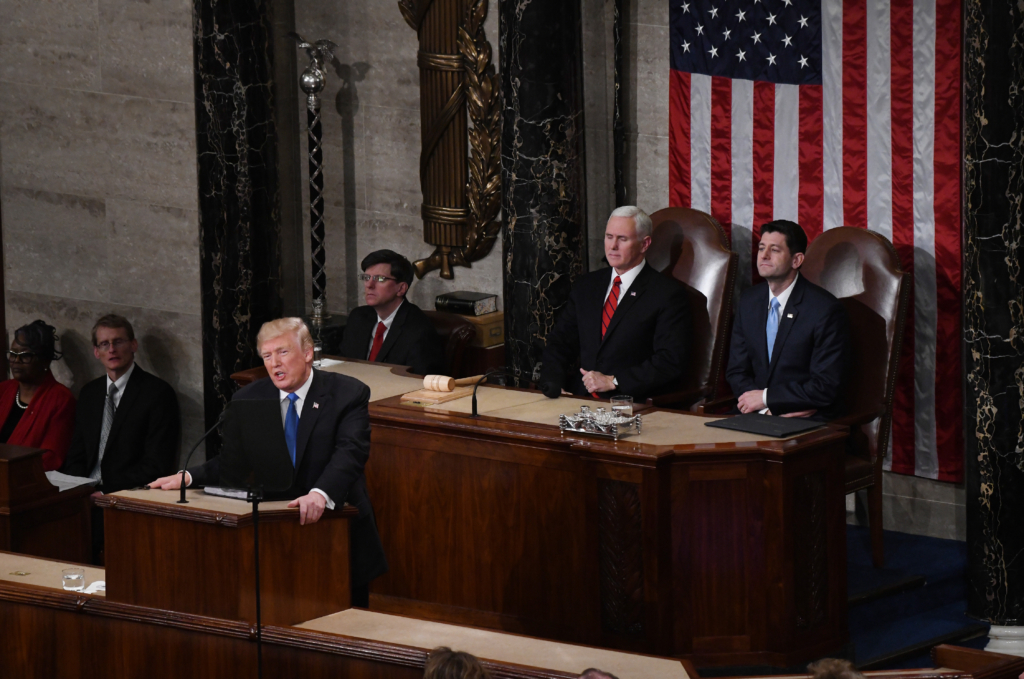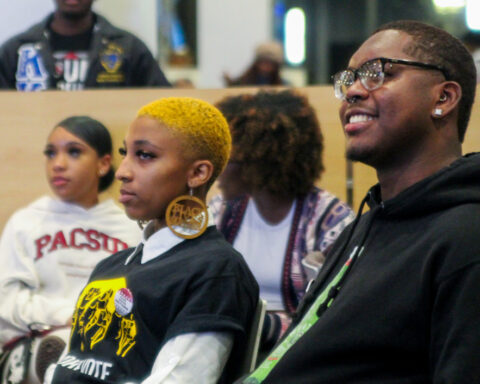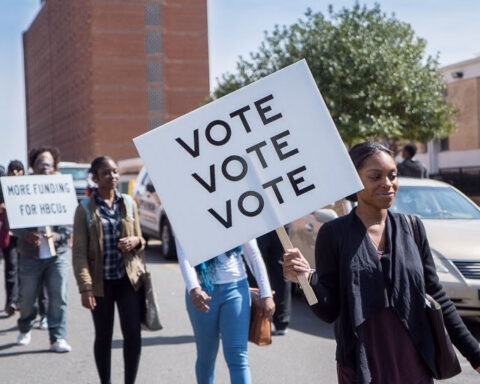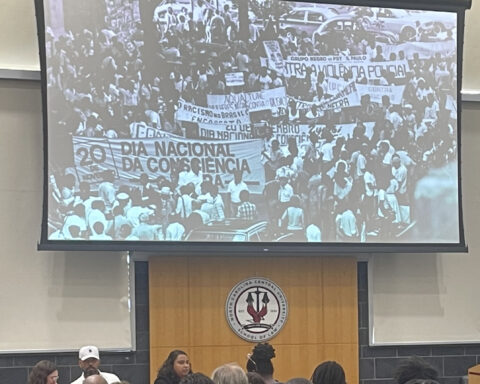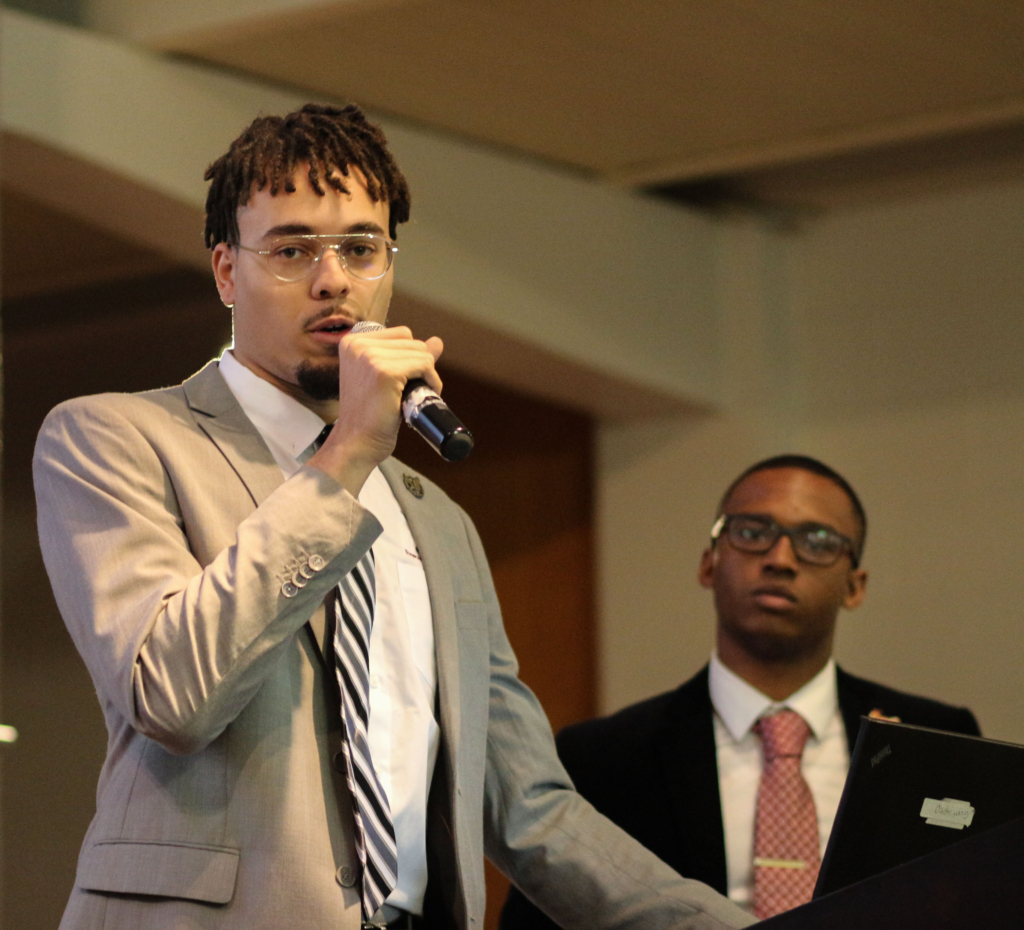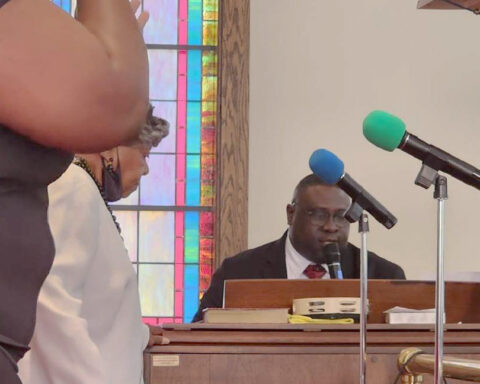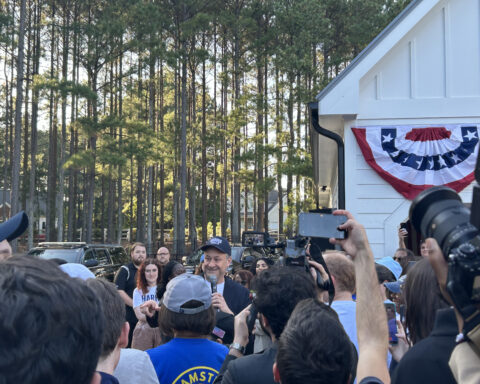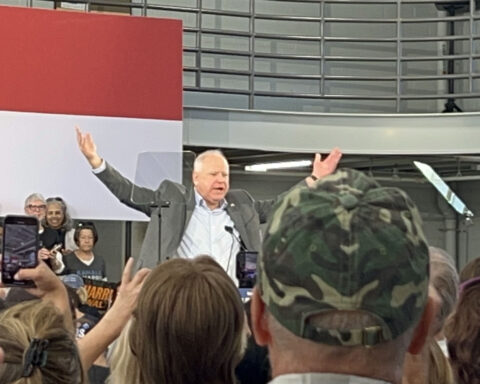While President Donald Trump spoke about multiple issues during his first State of the Union address Tuesday night, some members of N.C. Central University’s political science department say some things were still left unsaid or were incorrect.
Trump surprised listeners on both sides of the aisle by sticking to the script and speaking about bipartisan talking points like tax cuts, military spending and infrastructure.
However, his primary focus was one of the biggest legislative issues in Washington today: immigration reform.
The American public knows that our current president has been vocal in recent months about the topic and yet nothing was said about the Deferred Action for Childhood Arrivals (DACA) program allowing undocumented immigrants to pursue citizenship.
Instead, he focused on the negative effect current border policies have on the country as a whole.
“For decades, open borders have allowed drugs and gangs to pour into our most vulnerable communities,” Trump said, echoing his 2015 presidential candidacy announcement. “They have allowed millions of low-wage workers to have to compete for job and wages against the poorest Americans.”
Political science department chairman Emmanuel Oritsejafor says that Trump’s statement about chain migration allowing “virtually unlimited numbers of distant relatives” of immigrants to enter the country via relatives already in the United States is inaccurate.
“The assertion that immigrants who have already migrated to the United States can no longer bring their cousins and brothers to the United States (isn’t) consistent because the idea that they should be able to bring (their) cousins or anybody is contradictory to immigration law,” Oritsejafor explains. “On the other hand, they can bring their spouse or parents but not everyone else. It doesn’t work that way.”
The proposal congressional Republicans have for immigration reform, a four-pillared approach of a path to citizenship, security of the boarder, an end to visa lottery and the hindrance of chain migration, was also supported by the president during his speech as “a fair compromise (where) nobody gets everything they want but where our country gets the critical reform it needs.”
Trump was also quick to target Latin American gang MS-13 as part of his own immigration policy.
“Members (of MS-13) took advantage of glaring loopholes in our laws to enter the country as unaccompanied alien minors and then ended up murdering American citizens,” Trump said.
Professor Jarvis A. Hall believes Trump took the wrong path in approaching the issue.
“He approached (it) in a divisive way when he talked about criminality of immigrants as opposed to talking about how immigrants have really added to the vitality of our nation,” Hall said. “I wasn’t surprised, because this is the way he approached it when he first started running for president.”
While most important issues were covered, matters like the burgeoning “Me Too” movement to support survivors and end sexual violence or education reform didn’t receive any airtime.
“(Trump) fell short of any stated or unstated goals of striking a greater tone of national reconciliation,” says professor Ansel Brown. “I believe the president should have avoided contentious and polarizing issues.”
The State of the Union kicked off a busy week of speaking engagements for the president, the most recent of which happening last night as President Trump delivered remarks at the Republican National Committee winter meeting at the Trump International Hotel in Washington D.C.

